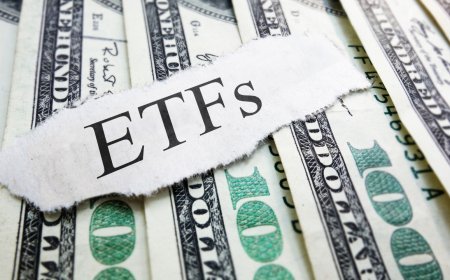The Psychology of Investing: Avoiding Emotional Decisions

The biggest enemy of investment success isn't market volatility, bad stock picks, or economic downturns—it's human psychology. Decades of research, including studies from Dalbar and Vanguard, show that emotional investors consistently underperform the broader market by an average of 3.7% per year due to poorly timed buys and sells driven by fear and greed. Understanding and controlling these psychological forces is often the difference between average returns and building real wealth over time.
The Most Common Emotional Investing Mistakes
Fear of Missing Out (FOMO) pushes investors to chase hot stocks, cryptocurrencies, or trending sectors right at market peaks, often leading to buying high and selling low when the hype fades. Loss aversion—the tendency to feel the pain of losses twice as strongly as the pleasure of gains—causes people to hold onto losing investments far too long in hopes of breaking even, while selling winning positions too early to lock in profits. Confirmation bias reinforces these errors by making investors seek out information that supports their existing views and ignore warning signs that contradict them.
How Market Cycles Amplify Emotional Reactions
Market cycles create predictable emotional patterns that trap most investors. In euphoric bull market tops, optimism runs high—everyone seems to be getting rich, risk feels rewarded, and caution appears unnecessary. At fearful market bottoms, pessimism dominates—conservative moves feel safest, selling pressure peaks, and almost no one wants to buy. Recognizing these phases in real time helps you spot when crowd emotions, rather than fundamentals, are driving prices.
Key Cognitive Biases That Derail Investors
Several well-documented biases quietly sabotage decision-making. Anchoring bias causes fixation on the original purchase price, making it hard to sell even when fundamentals have clearly deteriorated. Mental accounting leads investors to treat money differently depending on its source (e.g., treating "house money" from gains as less valuable). Overconfidence results in excessive trading, under-diversification, and ignoring risks. Herd mentality pushes people to follow the crowd—often the worst possible move at market extremes.
Building Emotional Discipline: Practical Foundations
The foundation of better investing psychology is a written Investment Policy Statement (IPS). This document clearly outlines your goals, time horizon, risk tolerance, asset allocation targets, and rebalancing rules—serving as your personal constitution during emotional storms. Automating as much as possible removes emotion from the equation: set up regular contributions, enable dividend reinvestment, and use systematic rebalancing to keep your portfolio on track without second-guessing.
Strategies to Stay Disciplined in Practice
Adopt simple rules to keep emotions in check: Use the 24-hour rule before making any major buy or sell decision. Limit portfolio checking to once a month or quarter to avoid knee-jerk reactions to daily noise. Reduce exposure to financial media and social platforms that amplify fear and hype. Stress-test your plan by imagining different scenarios (e.g., a 30% market drop) to build confidence in your strategy. Finally, view volatility as opportunity—use dollar-cost averaging and disciplined rebalancing to buy more shares when prices are low.
The Long-Term Perspective That Wins
No 20-year rolling period in U.S. stocks has ever delivered a negative return, even including major crashes. Mastering investment psychology isn't about eliminating emotions entirely—it's about recognizing them, understanding their patterns, and refusing to let them dictate your actions. The greatest investors succeed not because they're emotionless, but because they make fewer emotional mistakes and recover from them faster through systematic, rules-based approaches.
By focusing on process over short-term outcomes and maintaining a long-term view, you position yourself to capture the market's natural upward bias while avoiding the biggest drag on returns: your own psychology.
What's Your Reaction?
 Like
0
Like
0
 Dislike
0
Dislike
0
 Love
0
Love
0
 Funny
0
Funny
0
 Angry
0
Angry
0
 Sad
0
Sad
0
 Wow
0
Wow
0












































